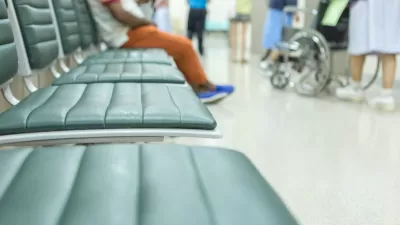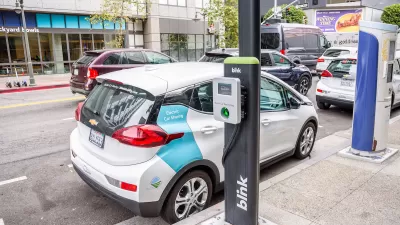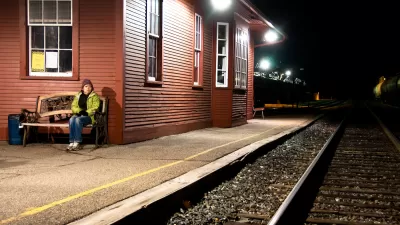Streetsblog calls attention to the lack of representation of women, people of color, and other groups in state departments of transportation that are largely dominated by white men.

High-ranking officials at state departments of transportation are much more likely to be male and white, according to data from the American Association of State Highway and Transportation Officials.
Two states — Wyoming and Nebraska — had no female executives, while all but seven states had more than 50 percent male executives. And in 11 states, including Georgia, Oklahoma, and Pennsylvania, 100 percent of executives identified as white.
According to the Streetsblog USA staff, this is troubling because the makeup of these agencies doesn’t reflect the populations they serve. “Because federal road funding largely flows through their offices, state-level decision makers have a massive influence over, for instance, which neighborhoods are targeted for demolition to make way for highway projects and which are left untouched — and needless to say, Black, brown, and low-income communities have historically (and presently) been the ones that get bulldozed the most.”
The article points out that women, people of color, nonbinary people, people with disabilities, and other underrepresented groups have different and unique needs when it comes to transportation, mobility, and safety. “As an absolute bare minimum, though, it's essential to ask why marginalized people so often aren't in the room when state DOTs make decisions to represent their own needs— and what impact their absence is having on all of our communities.”
To address similar issues, the Washington state legislature is considering a bill that would give transit riders direct representation on transit board.
FULL STORY: Data: State DOTs Look Nothing Like the Residents They Serve

Planetizen Federal Action Tracker
A weekly monitor of how Trump’s orders and actions are impacting planners and planning in America.

Congressman Proposes Bill to Rename DC Metro “Trump Train”
The Make Autorail Great Again Act would withhold federal funding to the system until the Washington Metropolitan Area Transit Authority (WMATA), rebrands as the Washington Metropolitan Authority for Greater Access (WMAGA).

The Simple Legislative Tool Transforming Vacant Downtowns
In California, Michigan and Georgia, an easy win is bringing dollars — and delight — back to city centers.

The States Losing Rural Delivery Rooms at an Alarming Pace
In some states, as few as 9% of rural hospitals still deliver babies. As a result, rising pre-term births, no adequate pre-term care and harrowing close calls are a growing reality.

The Small South Asian Republic Going all in on EVs
Thanks to one simple policy change less than five years ago, 65% of new cars in this Himalayan country are now electric.

DC Backpedals on Bike Lane Protection, Swaps Barriers for Paint
Citing aesthetic concerns, the city is removing the concrete barriers and flexposts that once separated Arizona Avenue cyclists from motor vehicles.
Urban Design for Planners 1: Software Tools
This six-course series explores essential urban design concepts using open source software and equips planners with the tools they need to participate fully in the urban design process.
Planning for Universal Design
Learn the tools for implementing Universal Design in planning regulations.
Smith Gee Studio
City of Charlotte
City of Camden Redevelopment Agency
City of Astoria
Transportation Research & Education Center (TREC) at Portland State University
US High Speed Rail Association
City of Camden Redevelopment Agency
Municipality of Princeton (NJ)





























